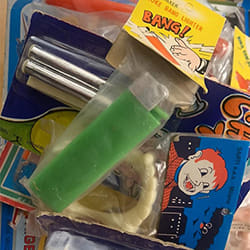About 30 years ago, a project was undertaken to support the Spanish steel industry by building the most up to date steel plant using Japanese technology, with more than 30 engineers and construction workers being sent from Japan. It was on that occasion that I was initiated by a senior employee with a wealth of overseas work experience into the don’ts of how to mentally approach this on-site work. These don’ts were summarized in “Five ‘A’s” [in Japanese, five phrases starting with the sound/letter “a”] of the title. I was told these don’ts when I joined the interpreting group assisting the project.
1. Aseru na: Don't rush
It might be a different story if you had been greeted with special courtesy, but you are going there on a technology transfer agreement with the customer, so it is quite right that you should fit in with the customer’s circumstances. Given that Japanese common sense might not be shared there, and you will be living in an unfamiliar country away from your family, it is understandable that you would be impatient to finish the job and come back home, but rushing ahead and chasing your tail will have the opposite effect, so prepare yourself mentally, and settle down.
2. Ate ni suru na: Don't hold on to expectations
It's a mistake to want local workers to “sing from the same hymn sheet” as you would in Japan with the colleagues you work with, expecting that they will do things for you without asking, or just assuming that things will probably be OK. To spell it out, if you have no expectations, you will have no disappointments.
3. Atama ni kuru na: Don't lose your cool
Humans sometimes have their patience tested beyond their limits. But those limits vary from person to person, and it’s a tenuous boundary subject to national traits. Japan’s common sense may be another country’s absurd way of thinking, so how about just stopping in your tracks for a moment before you blow your top.
4. Akirameru na: Don't give up
Giving up and leaving with your tail between your legs might be a stopgap fix, but you are quite likely to regret “Why did I give up like that?” and leave behind resentment that may last forever. Tenaciously [shibutoku], persistently [shitsukoku], patiently [shinbo zuyoku], determinedly [shitataka ni], hold on fast [shigamitsuku]. These are the five ‘Shi’s [in Japanese, five phrases starting with the sound/letter “shi”] .
5. Anadoru na: Don't scorn
Even if you are the so called elite engineer or construction worker hired by a big company for a long term overseas project, when you deal with local managers with the idea that you can “do things” better than local staff in charge can, with a superior sort of attitude, you will come across some unexpectedly outstanding talent beyond expectations and get a taste of your own medicine. Compared to Japan, where “the nail that sticks out gets hammered down” and people try to improve the average by working together, in Spain you frequently see eccentric geniuses and you mustn’t underestimate such people.
The “corporate warriors” who have worked in Africa, Southeast Asia, China, Latin America and so on have various versions of such lists of five don’ts, lists that are like standard sayings for them and include "don't panic," "don’t be indulgent," and so on.
If you look at them very closely, however, you will probably see that they represent mental attitudes that could help when you interact with a new generation that has a different way of thinking than before, even in Japan, for example the “Bubble generation,” the “Yutori generation,” the “Satori generation,” and so on. Perhaps you could say these “five 'A's” represent mental attitudes for encountering both foreigners and new breeds of humans.
- 2020.02.07
- Five ‘A’s




























































